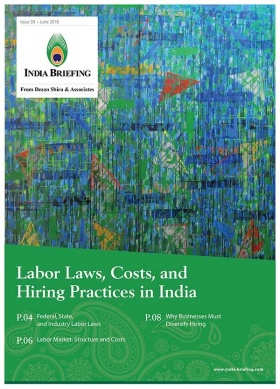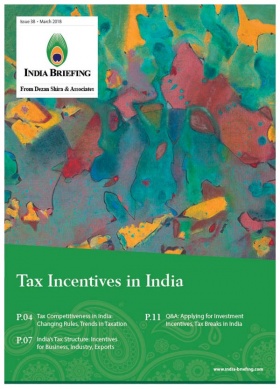Special Economic Zones in Delhi/NCR
 Jun. 27 – Special economic zones (SEZs) are regions within countries where tax is reduced, bureaucratic regulation lowered, and incentives offered so that more companies are attracted to the area.
Jun. 27 – Special economic zones (SEZs) are regions within countries where tax is reduced, bureaucratic regulation lowered, and incentives offered so that more companies are attracted to the area.
In 2006, the Government of India devised a guiding principle for setting up SEZs in India.
SEZs are specially defined duty-free enclaves for the purpose of trade, operations, duty and tariffs.
These zones are self contained and incorporated, having their own infrastructure and support services.
An SEZ is a geographical region that has economic laws different from a country’s generally applicable economic laws, with the fundamental objective being an increase in economic growth and activity through increased foreign investment.
In India, land is the subject matter of state governments.
Land for SEZs is obtained according to the policy and practices of the respective state governments.
The main objectives of the SEZ scheme in India are:
- Generation of additional economic activity;
- Promotion of goods and services exports;
- Promotion of investment from domestic and foreign sources;
- Creation of employment opportunities; and,
- Development of infrastructure facilities.
SEZs are expected to achieve positive net foreign exchange (NFE) earnings over a period of five years from the commencement of production, failing which the units shall be liable for penal action under the provisions of the Foreign Trade (Development and Regulation) Act, 1992.
No export targets are laid down for SEZs, however.
Where the developer has leasehold rights over the recognized area, the lease shall be for a period of time no shorter than twenty years.
The units projected to be set up in an SEZ can be for manufacturing, service provision, or trading or warehousing units.
Delhi/NCR
Delhi/NCR includes Delhi and the national capital region of Delhi, Gurgaon, Noida, Greater Noida, Faridabad, Ghaziabad and Sonepat.
There are nine special economic zones in total in Delhi/NCR, as follows:
Role of State Government in Establishment of SEZ Units
State governments play a dynamic role in establishing SEZ units.
Any application for setting up an SEZ unit in the private, joint, or state sector is forwarded through the concerned state government who in turn forwards the same to the Ministry of Commerce & Industry (Department of Commerce) with its suggestions for consideration.
Before recommending any proposals to the Department of Commerce, the state government checks all the necessary inputs (such as water and electricity) necessary for the establishment of the unit.
The state government has to forward the proposal to the Board of Approval with its recommendations within 45 days of the initial submission.
The candidate also has the option to submit the proposal directly to the Board of Approvals.
A representative of the state government, who is a member of the Inter-Ministerial Committee on private SEZs, is also consulted while considering the proposal.
Investment Policy
Numerous financial and regulatory incentives are provided to developers of the SEZs as well as units within these zones.
In addition to the incentives offered by the Central SEZ Policy, state policy offers several additional incentives to the units within these zones.
According to the Indian SEZ Policy, a SEZ may be established by a private company (individual / non-resident Indian / Indian company / foreign company), or state government, or a combination.
Within these zones, units may be set-up for the manufacturing of goods, provisioning of services, and other activities including processing, assembling, trading, repairing, reconditioning, and the production of gold/silver/platinum.
The Policy allows 100 percent foreign direct investment in most manufacturing activities. If the SEZ developer or members of the developing group seek to engage in foreign direct investment, FDI policies and procedures must be complied with.
These are in addition to SEZ policies and measures, which are common with or without FDI.
Various tax benefits are available to SEZ developers, including:
- Exemption from customs and excise duties;
- 100 percent income tax exemption on export income for SEZ units under Section 10AA of the Income Tax Act for the first five years, 50 percent for the five years thereafter, and 50 percent of the ploughed back export profit for the next five years; and,
- Exemption from minimum alternate tax, exemption from dividend distribution tax, exemption from goods and services tax (GST) on inter-state purchases of goods.
Besides the above central regulatory establishments, most of the states have or are in the process of enacting their own SEZ policy.
The requirement of the state SEZ act or policy is to provide a collection of regulatory frameworks for SEZ development in the state in consonance with the Central Act, provide for economic incentives to SEZ developers and SEZ units, provide a mechanism for single window clearance for SEZ developers, and provide a device for resolving state level matters concerned with labor, pollution, and municipal corporation.
Delhi
The sectors recognized for the establishment of SEZs comprise information technology-enabled services, electronic hardware and software, nanotechnology, biotechnology, gems and jewelers, non-conventional energy equipment, fashion and garments (without dyeing) and higher technical education institutes.
Industries that present environmental issues may not be established inside SEZs and environmental clearance is a must for all projects except those dealing with ITeS.
The owners and builders of SEZs are accountable for providing water supply and distribution systems and also responsible for the provision and preservation of a sewage disposal system.
Subsequently, the developer must sign a memorandum of understanding with the Delhi Jal Board (a government water supply authority in Delhi).
Dealings within the SEZ area will not be liable for state and local taxes.
No stamp duty will be levied on lease/license action regarding the land or built up space.
All units and other establishments in the SEZ will be declared as “public utility services” under the jurisdiction of the Industrial Dispute Act, 1947.
Uttar Pradesh (UP)
The policies of the Uttar Pradesh state government relating to the Uttar Pradesh SEZ aim at the development of industries in the state and the establishment of the state as a key industrial focal point.
Responsibility for the development of the Uttar Pradesh SEZ is given to the private sector.
The Uttar Pradesh SEZ is designed on the model of Shanghai’s SEZ.
The SEZ’s policy offers owners and investors with an exclusive two-way exemptions and incentives plan.
The development plan pertaining to the Uttar Pradesh SEZ is divided into three categories based on different regions.
The first category (or Category A) covers Greater Noida and Noida, the second category (or Category B) covers those developed within the legal dominion of the development authorities, and the third category (or Category C) relates to all other areas.
The premier organizations with responsibility for the development of the SEZ units are the Greater Noida Development Authority for Greater Noida, the Noida Development Authority for Noida, and the Uttar Pradesh State Industrial Development Corporation for the SEZ units in Category C.
Special Elements of UP SEZ
- The processes used in the attainment of land are highly effective and time efficient;
- The single window system relating to yielding of permits and approvals is based on issues such as work force and environment;
- There are no stamp or registration fees;
- There are no local or state duties taxes, and no taxes pertaining to the functions of the SEZ;
- Authorization pertaining to the setting up of power generation units is undertaken by the manufacturing units for their own use;
- Water supply: The area of the SEZ should have a sufficient supply of water as suggested by the administrative authority of the SEZ;
- Power supply: The area of SEZ should have a nonstop supply of power and also have a back up power service in case of stand-by situations; and,
- Registration of small scale industry and IT enabled services: The administrative authorities are empowered to grant permanent and provisional registration for small-scale industry and information technology enabled service units.
Haryana
In Haryana, the owner of an SEZ has to provide for the rehabilitation of the population living in the particular area prior to the construction of the given SEZ.
Rehabilitation includes residential plots and basic amenities.
Immunity is given from payment of any tax, duty, fees, cess and other levies.
Stamp duty is paid by the developer in respect of fixed property deals entered into.
The following processes are excused from payment of any tax, duty, fees, cess or any other levies under any existing state law:
- Any goods exported out of or imported into the SEZ;
- Inter-unit transaction of goods within the SEZ;
- Goods from the SEZ sent for value addition to the domestic tariff area and returned to the SEZ thereafter; and,
- Services that provide value addition to a product within the SEZ.
All transactions and transfers of fixed property or documents related thereto within the SEZ are exempt from stamp duty payment.

About Us
India Briefing is produced by Dezan Shira & Associates. The firm assists foreign investors throughout Asia and maintains offices in China, Hong Kong, Indonesia, Singapore, Vietnam, and Russia.
Please contact india@dezshira.com or visit our website at www.dezshira.com.
- Previous Article India Looks to FDI to Boost Nuclear Energy Sector
- Next Article Sliding Rupee Creates Opportunity for Foreign Investors in India












